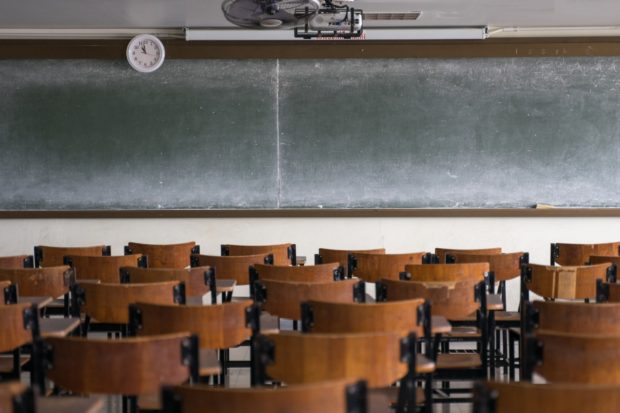
STOCK PHOTO
MANILA, Philippines — Student’s mental health and the country’s economy were among the primary considerations of President Rodrigo Duterte in allowing the pilot face-to-face classes in the basic education sector at areas with low-risk COVID-19 transmission, Malacañang said Monday.
According to presidential spokesperson Harry Roque, the President’s decision did not just consider the issue of education and health, pointing out the significance of holding face-to-face classes to learning.
“Ito ay hindi lang issue ng edukasyon. Issue na rin ito ng health, mental health ng kabataan at issue na rin ng ekonomiya kasi baka mayroon tayong henerasyon na mawala dahil walang face-to-face classes,” Roque said in a Palace briefing.
(This is not only an issue of education. This is also a health issue, the mental health of students, and likewise, an issue of the economy because we may be losing a generation if we don’t hold face-to-face classes.)
Aside from carrying out the pilot face-to-face classes areas with low-risk COVID-19 transmission, its conduct should also secure the consent and support of parents and local government units.
Further, in approving in-person classes on Monday, Duterte said these should only be half-day sessions and done every other week.
READ: Duterte OKs pilot face-to-face classes in areas with minimal risk for COVID-19
Education Secretary Leonor Briones said her agency has yet to determine a start date for the pilot run but 120 schools — 100 public schools and 20 private schools — were being considered for its implementation.
The Philippines was supposed to hold the pilot run for in-person classes earlier this year but Duterte cancelled it over the emergence of the more infectious variants of SARS-CoV-2, the latest coronavirus strain the causes COVID-19.